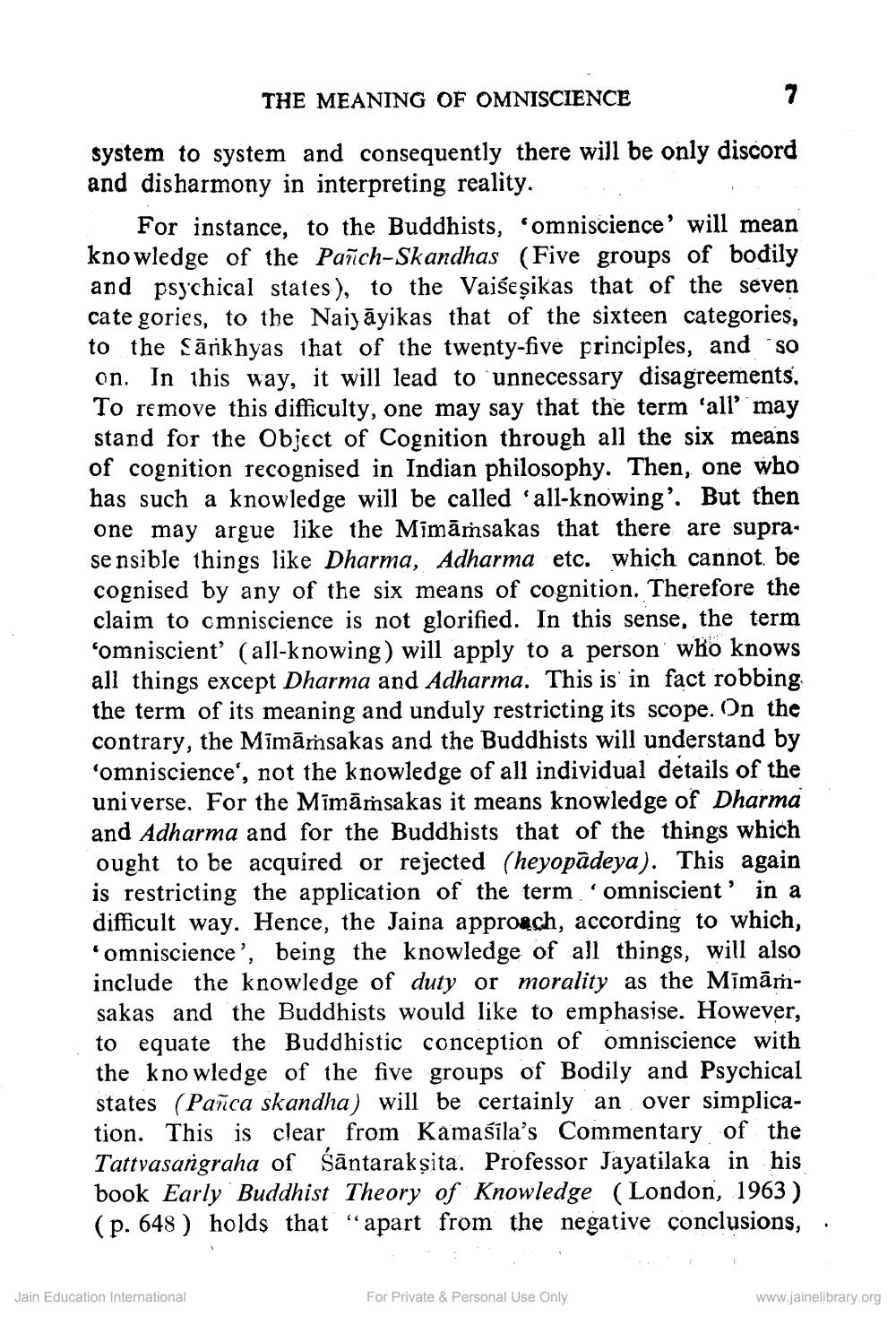________________
THE MEANING OF OMNISCIENCE system to system and consequently there will be only discord and disharmony in interpreting reality.
For instance, to the Buddhists, omniscience' will mean knowledge of the Pasch-Skandhas (Five groups of bodily and psychical states ), to the Vaišeşikas that of the seven cate gories, to the Naiyāyikas that of the sixteen categories, to the Sārkhyas that of the twenty-five principles, and so on. In this way, it will lead to unnecessary disagreements, To remove this difficulty, one may say that the term 'all' may stand for the Object of Cognition through all the six means of cognition recognised in Indian philosophy. Then, one who has such a knowledge will be called 'all-knowing'. But then one may argue like the Mimāṁsakas that there are suprasensible things like Dharma, Adharma etc. which cannot be cognised by any of the six means of cognition. Therefore the claim to omniscience is not glorified. In this sense, the term 'omniscient' (all-knowing) will apply to a person who knows all things except Dharma and Adharma. This is in fact robbing the term of its meaning and unduly restricting its scope. On the contrary, the Mimāṁsakas and the Buddhists will understand by 'omniscience', not the knowledge of all individual details of the universe. For the Mimāṁsakas it means knowledge of Dharma and Adharma and for the Buddhists that of the things which ought to be acquired or rejected (heyopādeya). This again is restricting the application of the term 'omniscient' in a difficult way. Hence, the Jaina approach, according to which, 'omniscience', being the knowledge of all things, will also include the knowledge of duty or morality as the Mimāṁsakas and the Buddhists would like to emphasise. However, to equate the Buddhistic conception of omniscience with the knowledge of the five groups of Bodily and Psychical states (Pañca skandha) will be certainly an over simplication. This is clear from Kamasila's Commentary of the Tattvasangraha of śāntarakṣita. Professor Jayatilaka in his book Early Buddhist Theory of Knowledge (London, 1963) (p. 648 ) holds that "apart from the negative conclusions,
Jain Education International
For Private & Personal Use Only
www.jainelibrary.org




